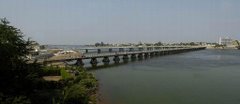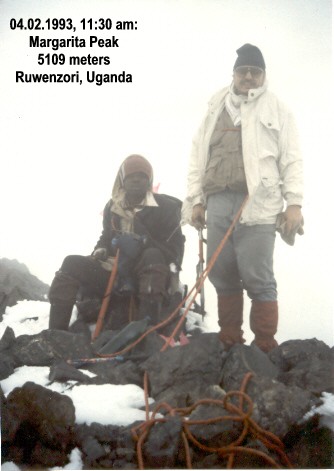Hier zeigt sich einmal mehr sehr gut, aus afrikanischem Mund, dass es nicht um technische Hilfe geht, sondern um "social engeneering", von mir aus auch um "political engeneering". Das trifft auch sehr gut für die gegenwärtige Energiekrise zu. Denn Mangel an Zusammenarbeit auf höchster Ebene (einschl. der Vorgängerregierung) ist auch hier der eigentliche Grund der Misere. Der Widerspruch ist allerdings, dass dieses social und/oder political engeneering von Kulturfremden geschehen soll.
» Quell-URL
Folks,
We have heard the lamentations of missionaries to Africa since the days of Mungo Park and Stevenson dying of malaria in Africa, and not much have changed if you examine life and events carefully, despite the World Bank and IMF accolades that Ghana is doing well. We all know it’s a charade as loans are piling up and the government still cannot deliver basic water, electricity and sewage services to the people. A very large percentage of our people don’t have water (more than 70%) and latrine pit toilets – the one with the big flies – are still being used in Ghana.
Kirstin Green writing you from Ghana, where 1.72 of 2.16 years in service have miraculously flown by. I have been working on getting funding to build a much-needed latrine in my community, Kumawu. Population 10,000 people, with no source of water at all. There are no flush toilets there, and worse, not too many public or private pit latrines for people to use. In the Zongo, or Muslim community, where I live, people are "freeing themselves" in the bush every day. There is a small building that has been in disrepair for years, where people are expected to defecate into buckets that have to be emptied into a large pit right behind the building. There are a lot of sanitation problems in this area: mainly parasitic worms, flies, and diseases that are transmitted by feces to mouth, like diarrhea (don't laugh, it's easier than you think to eat someone else's feces!) » Read entire article
__________________
RESPONSE:
Dear Kirstin,
Your message has touched me, but instead of lamenting on such matters, I believe what a person like you can do most to help the poor in Kumawu, and other areas we hear and know in the impoverished parts of the world, is to teach them the concepts of working together, concepts of leadership and modern forms of democracy and accountability.
Decentralization and local empowerment is stipulated in the 1992 Ghana constitution. These people of Kumawu have a District Chief Executive, an Assemblyman, as well as a Chief of the town. These people are the leaders in the community, and they have the mandate to design a budget, assign some taxes for citizens, owners of businesses, homes, vehicle and other assets, to pay to provide services to their area towns.
It is extremely important that C hristian missionaries and Peace Corp volunteers like yourself learn that helping people to help themselves is better than the Bible-carrying and non-self sustaining help they have offered over the centuries. The world of trade now has open borders, due to the dictates of the Western donors for these poor nations to open their doors to global competition. And yet the poor have no way of competing. If you want to help them, please teach them. Please go to the DCE and the Assemblyman and show them how a simple budget can be designed and shown them the power of working together if every one of the 10,000 people and perhaps 1,000 or more homes in the town pays a small amount of money, how they can provide not only toilets with a well to supply water to drink and flush their toilets, but also decent sanitation, perhaps a small clinic, other services to allow them to live more healthy lives.
Kirstin, these people are not stupid, and many of them have some basic education. They just have no concept of how to work together, how to do some basic things. The best we can, as missionaries, is to help them see the right way to do things and work collectively together to solve their problems. If you have access to a Computer, show them how to do a budget using Excel™ Spreadsheet for example, and they will thank you and be grateful to you forever.
For your information a group of us have transformed a missionary NGO organization into a certified political party originating from the Diaspora. We have received our certificate as a political party now as of February 20, 2007. We are doing this in a similar way as the missionaries did, except that instead of the Bible, we are using a Business calculator and asking people to select leaders who will serve them and retire the old greedy selfish politicians who do not care for the peoples’ welfare. After a man reads the Bible, he has to provide food to the table and that is what we are trying to help our people to do, to select the right leaders in their communities, create jobs and compete in the world and build a better nation. We are simply acting as political missionaries to teach our people the concepts of democracy and self empowerment.
You may contact us through our office at 021-411-973 (Ofori Ampofo - Chairman) or email me at k.danso@comcast.net
Keep in touch and we wish you all the best as you attempt to teach the people in Kumawu.
Kwaku A. Danso, M. Eng, PhD (Organization & Management)
Political Missionary, Ghana National Party
www.natlparty.com
Fremont, California and East Legon/Accra, Ghana



